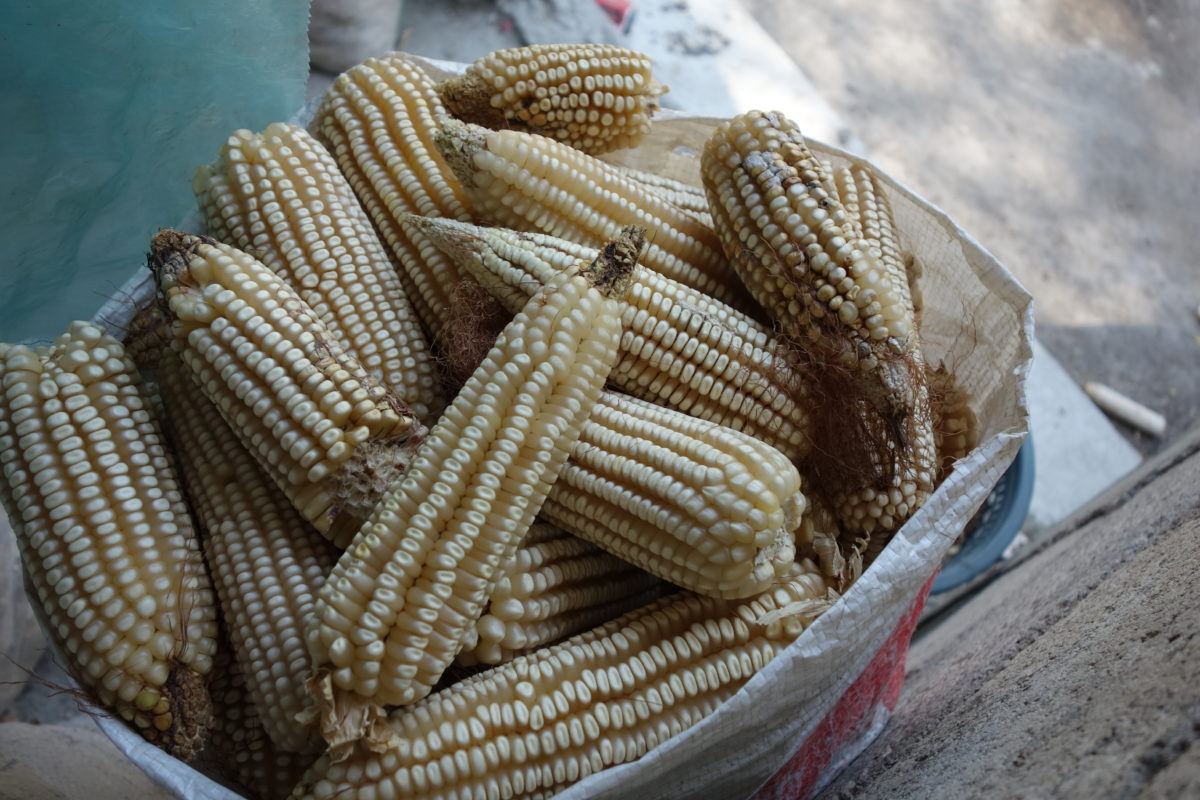
In January I tagged along with my wife, Anna Zaros, Mary’s Pence Development and Outreach Director, on her trip to visit ESPERA groups in Mexico. I had the opportunity to visit with and photograph groups of women who received loans from locally owned ESPERA lending pools, pools Mary’s Pence helped create in partnership with local women’s groups. I heard stories about how the loans, and the accompanying support of ESPERA staff and coordinators, have been affecting their economic and social livelihoods. Gilda Larios, ESPERA Facilitator, was our tireless guide and connected us with people who had much to say about their lives. It was a unique opportunity for me to learn about the realities of people living in Mexico.
I visited the home of Letty in Cuentepec, a small indigenous village in the rural outskirts of Cuernavaca. It was the feast day of St. Sebastian, the patron Saint of their town, and following their custom, each family welcomed us with an edible feast of chicken mole with all the trimmings. Walking around their property I saw a huge pile of dried corn that partially filled the room used for cooking. I asked if they grew the corn for consumption or sale, and they told me “We grow it for consumption, because we can’t really get a good price for it if we try to sell it.”
Later on in the visit we met Gilda’s longtime friend and colleague, Liliana. She told us about one of the economic barriers currently facing the Mexican working class. If a person, say Fulana Lopez, wants to sell her handmade crafts to a wholesaler or retail outlet they must sell them to a Coyote, who is basically a middleman in the supply chain. Coyotes are granted exclusive domain in a particular municipality, so Fulana can only sell her goods to one buyer, who pays her a very low price. If she tries to sell to another buyer for a better price, Fulana is threatened with violence. The government of the municipality does not intervene because they receive payment from the Coyote, to maintain their purchasing monopoly over the situation.
So in the end, the Coyote wins with a substantial markup in the selling price of goods, the politicians get a piece of that profit, but the producers of the goods are paid unfairly, perpetuating their struggle to advance themselves economically. It seemed clear that for a producer, the ability to sell ones own goods directly to consumers would provide a significant advantage in this system.
Many of the women who received loans from the ESPERA Fund were doing just that. Letty, for example, may not sell her corn, using it instead for her family’s consumption, but she used an ESPERA loan to start a small store in her community. A store she has control over – a store that bypasses the coyote system.
This is what the ESPERA program does – in the midst of unjust economic systems it provides opportunity for women to create economic initiatives that bypass these injustices – initiatives that provide a true benefit to women, their families, and their communities.
David Hong
